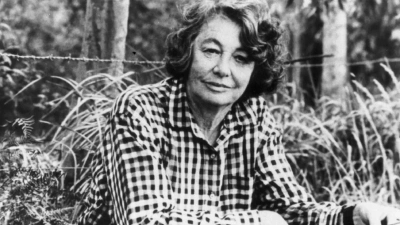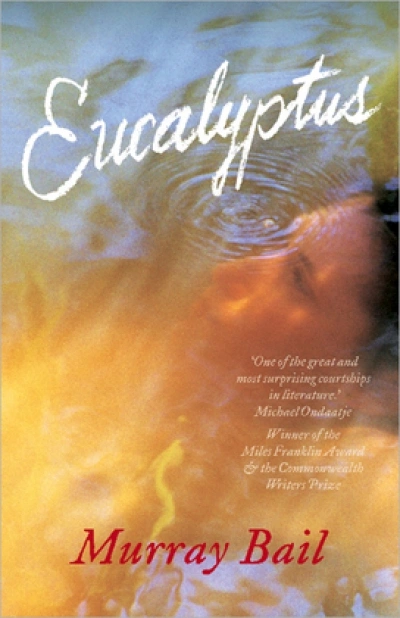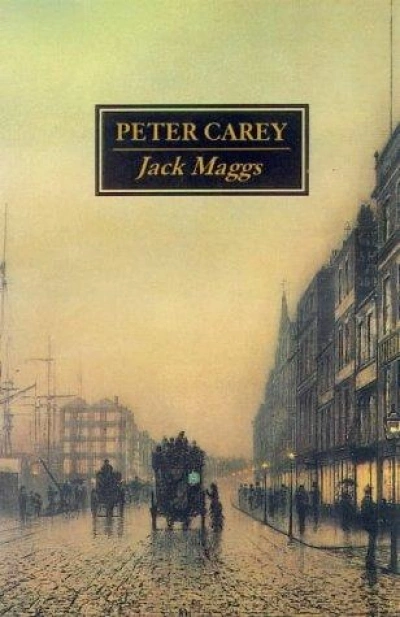Miles Franklin Literary Award
Calibre Prize
Since announcing the joint winners of the third Calibre Prize, we have received many compliments for Jane Goodall’s and Kevin Brophy’s winning essays, and various expressions of support for Calibre. Several of these appear on our website, and this month we also publish letters from Elisabeth Holdsworth inaugural winner of the Calibre Prize in 2007 and from Nicholas Jose, who also writes about the Macquarie PEN Anthology of Australian Literature in this issue.
It is very pleasing to be able to announce that Copyright Agency Limited, through its Cultural Fund, will sponsor the fourth Calibre Prize, for which ABR now seeks entries. Once again the Prize is worth $10,000, making it one of the world’s most lucrative awards for a new essay. This year we are adding a second Prize Young Calibre which is open to those aged twenty-one and under. Young Calibre is worth $3000 not a bad start for a brilliant secondary student or undergraduate. More details appear on page 9, and both sets of guidelines and entry forms are available on our website or from the ABR office.
... (read more)The ups and downs of biography
Hazel Rowley is the 2007 Australian Book Review/La Trobe University Annual Lecturer. That title is quite a mouthful (the acronym doesn’t bear thinking about), but one that Dr Rowley will handle in her stride, as those who recall her appearances on Australian literary stages will attest.
Dr Rowley – born in England and educated in Australia – taught for many years at Deakin University before moving to the United States. In 1993 she published Christina Stead: A Biography. In her review in The Independent, Doris Lessing said, ‘Christina Stead has long needed a good biographer, and here she is.’ Miegunyah has just issued a revised edition of the biography, in time for Dr Rowley’s Annual Lecture – and her appearance at the Sydney Writers’ Festival.
... (read more)New Partner for ABR
Let’s be candid. Producing a magazine of this kind is not easy in a country with a small population and one where the life of the mind (even if not ‘the least of possessions’, to quote Patrick White) rarely commands the attention or glamour often associated with sporting events and other fashionable distractions.
... (read more)The whole of inland Australia is manoeuvred, manipulated by the weather and by seasons, especially if you are in primary industry. I always like the story, I was travelling north once on the plane and the person next to me said that they hadn’t had rain for seven years. They were living out around Mt Isa and the first time it fell, his five-year-old ran in screaming with fright. But that’s probably one of those north Queensland stories.
... (read more)Soon after the announcement of the shortlist of this year’s Miles Franklin Literary Award (‘the Miles’), bookmaker Tom Waterhouse installed Anna Funder’s All That I Am (2011) as favourite. Fair enough, too: it’s an astute and absorbing Australian novel about, among other things, Nazism’s long shadow. But Waterhouse favoured Funder – oddly – because her non-fiction book Stasiland (2003) won the Samuel Johnson Prize in 2004. He asserted – debatably, even if it proves correct in 2012 – ‘a strong positive correlation’ between the Miles and the Australian Book Industry Awards. Most interestingly, he noted that the administrators of the Miles, The Trust Company, have now authorised the judges to extend their interpretation of Australianness beyond geography.
... (read more)On 19 June 2008, at a gala dinner held at the State Library of New South Wales, Steven Carroll was announced as the winner of the 2008 Miles Franklin Award for his novel The Time We Have Taken (HarperCollins Australia). On accepting the Award, Steven Carroll said:
... (read more)It’s an extraordinary thrill and an honour – but it’s also daunting to be joining a long list of authors whom you’ve either studied or admired for years. The Miles Franklin comes with the gravitas of a whole literary tradition, and you feel that weight almost instantly.
2004 National Biography Award
There have been some big developments with this award, which is administered and presented by the State Library of New South Wales on behalf of its benefactor, Dr Geoffrey Cains. As we go to press, the organisers tell us that this year’s prize money has been increased from $15,000 to $20,000, because of the generosity of Michael Crouch, Director of Zip Heaters and a supporter of the Library. This makes it one of our wealthiest literary awards. The judges (Edmund Campion, Amanda Lohrey and Gerard Windsor) have compiled an interesting short list: Robert Adamson’s Inside Out (Text), Li Cunxin’s Mao’s Last Dancer (Viking), Robert Hillman’s The Boy in the Green Suit (Scribe), Gaylene Perry’s Midnight Water (Picador) and Peter Skrzynecki’s Sparrow Garden (UQP). On March 2, Belinda Hutchinson will announce that Robert Hillman (not the Robert Hillman who gets stuck into Geoff Page in our ‘Letters’ this month) is the winner of this year’s award.
... (read more)Picador has done rather well in this year’s Miles Franklin Literary Award (worth $28,000), with three of the five short-listed novels: Richard Flanagan’s Gould’s Book of Fish, Joan London’s Gilgamesh and Tim Winton’s Dirt Music. Completing the quintet are Steven Carroll’s Art of the Engine Driver (Flamingo) and John Scott’s The Architect (Viking). The winner will be announced in Sydney on June 13.
Perpetual Trustees has been kept busy with short lists, including the one for the 2002 Nita B. Kibble Literary Award for Women Writers. This one, to be announced in Sydney on May 7, is worth $20,000. Three works in different genres have been short-listed: Marion Halligan’s novel The Fog Garden, Jacqueline Kent’s biography of Beatrice Davis, A Certain Style, and Hilary McPhee’s memoir, Other People’s Words.
... (read more)






